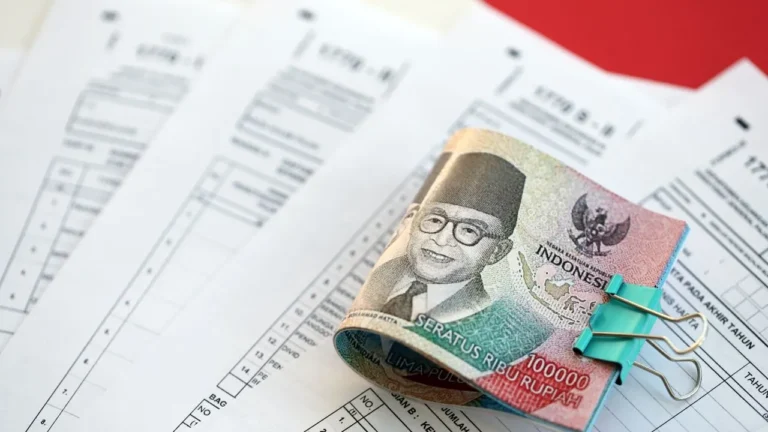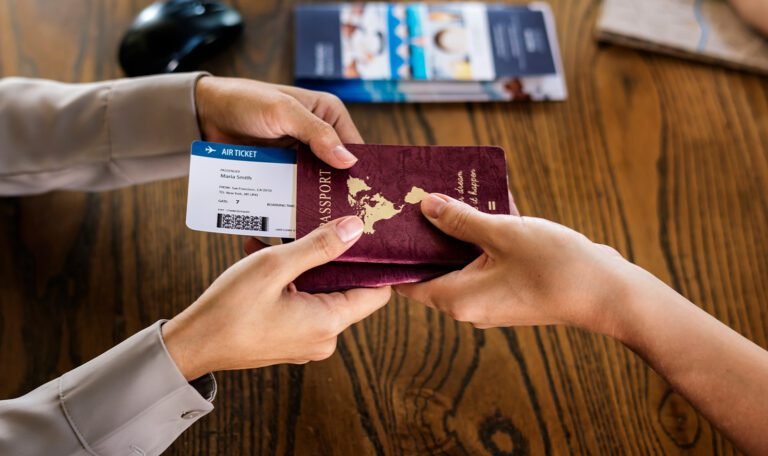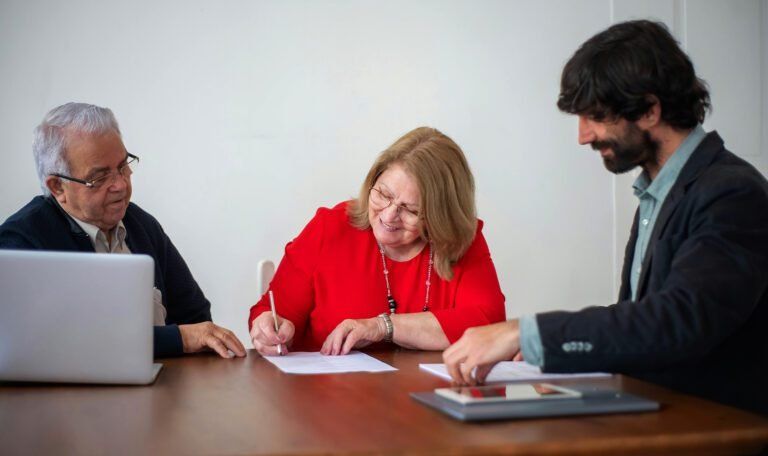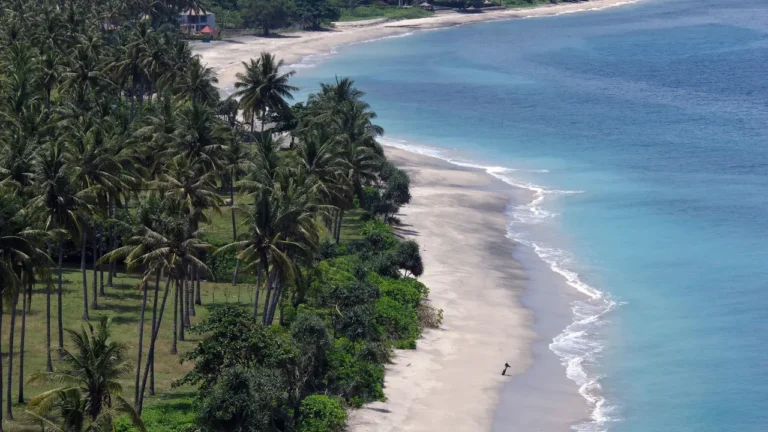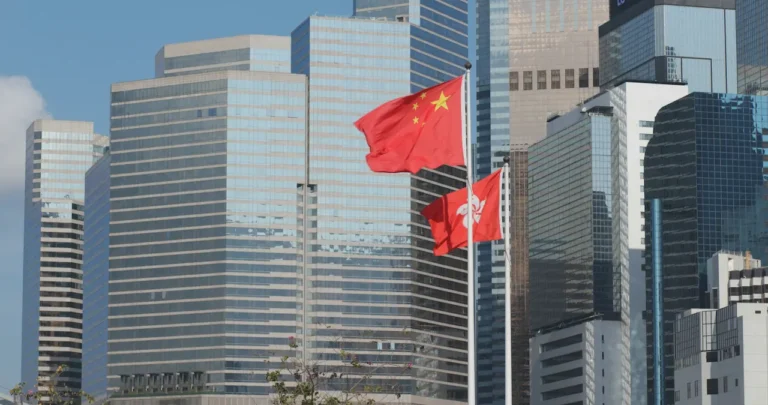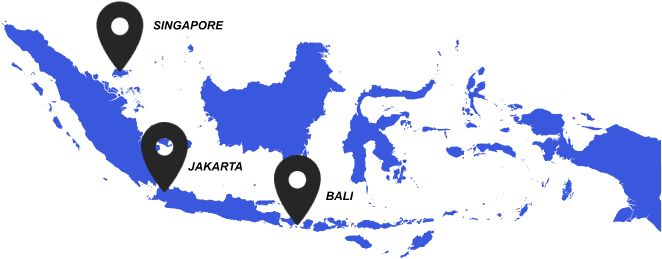Table of Contents
ToggleIndonesia’s siren song beckons louder than ever, promising sun-drenched shores, vibrant festivals, and a warm embrace for retirees seeking a serene haven. But before you pack your bags and book your flight, navigating the legalities and logistics of relocation can feel like deciphering ancient hieroglyphics. Fear not, intrepid dreamers! This comprehensive guide illuminates the path to retire in Indonesia, covering the intricacies of visas, property investments, and the secrets to unlocking your blissful Indonesian retirement. Discover the beauty of an Indonesia retirement visa, explore the details of a visa for Indonesia, and understand the cost of living with this complete guide.
Who Can Apply for a Retirement Visa in Indonesia?
Indonesia gives the opportunity to retired people to spend their golden days into the country and apply for a limited stay permit (KITAS). People having reached 60 years can apply for the E33F Retirement Visa or E33E Silver Hair.

Your visa process made easy with ILA
Indonesia has so many visas to choose from, each with its own requirements, regulations, and duration. With more constantly being issued by the government, it can be hard to keep track and choose one that is right for you.
With the help of ILA, you can be sure that you’ll get the best visa for your needs as quickly and efficiently as possible without having to worry about any missing documents.
Whether you’re looking for an Investor KITAS, Working KITAS, Second Home Visa, Spouse KITAS, Multiple Entry Business Visa or Remote Worker Visa, we can help make the process efficient and smooth.
Schedule a free consultation today or learn more about the different visa options.
Visa Options: Your Key to Paradise Awaits
E33F – Retirement Visa (KITAS)
This visa is valid for 1 year with proven income (minimum US$2000/month), is ideal for active retirees exploring the diverse tapestry of Indonesia.
Document requirements:
- Passport valid for at least 6 (six) months (for holders of travel documents other than passports such as emergency passports, documents of identity, etc. must be valid for 12 months).
- Personal bank statement with minimum amount USD $2000 or equivalent the last 3 months period (including name, date of period, and balance account).
- Recent photograph.
- Curriculum Vitae.
- Travel Itinerary.
- Guarantee from the guarantor.
- Bank account proving income or allowance with a value of US$3,000 per month.
E233E Silver Hair (KITAS)
This visa grants you a 5 stay permit with multiple entries, minimal restrictions, and the freedom to bring your loved ones. Your tropical escape awaits!
Document requirements:
- Valid Nationality Passport at least 6 (six) months.
- Latest color photograph.
- Curriculum Vitae.
- Travel Itinerary.
- Statement of commitment that the applicant will deposit funds in an account in his/her own name worth at least US$50,000 (fifty thousand US dollars) in a state-owned bank.
- Proof of income or benefits with a minimum value of US$3,000 (three thousand US Dollars) per month.
E33 – Second home visa: The Gilded Gateway to Luxury
For high-net-worth individuals, the Second home Visa (E33) opens the doors to a life of exclusivity. You can obtain this visa with a validity of 5 years with a possible extension to 10 years. This KITAS is a perfect solution for people wishing to establish Indonesia as their second home or willing to retire in Indonesia.
The applicant of the second home visa must fulfil at least one of the requirements below. The property investment cannot be a leasehold and has to be purchased under Hak Pakai.
- Deposit funds in an account under the name of the Foreigner at a state-owned bank with a value of US$ 130,000 (one hundred thirty thousand US Dollars)
- Purchase property in Indonesia such as an apartment/flat house with a value of US$1,000,000 (one million US Dollars).
Read Also: E33G: Remote Worker Visa (Digital Nomad) in Bali
Beyond the Visa: Building Your Dream Property Portfolio
Your Indonesian retirement isn’t just about a visa; it’s about building a life you love.
Where to retire
- Beachfront villas: Wake up to the sound of waves lapping at your shore in Bali or Lombok.
- Charming traditional houses: Immerse yourself in the rich culture of Yogyakarta or Ubud.
- Vibrant city hubs: Experience the energy of Jakarta or Surabaya, with modern amenities and cultural offerings.
- Serene mountain retreats: Find peace and tranquility in the lush highlands of North Sumatra or West Java.
Investment Options:
- Direct purchase: Own your slice of paradise with complete control.
- Leasehold : Enjoy 30+ years of property rights without land ownership.
- Co-ownership projects: Share costs and maintenance responsibilities while enjoying a piece of the dream.
- Leaseback options: Generate passive income through guaranteed rental agreements
Remember:
- Seek professional guidance: Consult experienced lawyers and real estate agents to navigate legalities, understand property taxes and maintenance costs, and ensure a smooth investment.
- Plan for the future: Consider potential property appreciation, exit strategies, and long-term maintenance costs for financial security.
Living Your Blissful Indonesian Dream:
- Embrace the local culture: Learn Bahasa Indonesia, connect with communities, and immerse yourself in the warmth of Indonesian hospitality.
- Healthcare: Research healthcare options and consider international health insurance for peace of mind.
- Lower cost of living: Enjoy a comfortable life on a budget compared to many Western countries.
- Activities and exploration: From diving in coral reefs to trekking through volcanoes, Indonesia offers endless possibilities for adventure and discovery.
Bonus Tips for Success:
- Start early: Visa applications and property transactions can take time. Plan ahead to ensure a smooth transition.
- Be flexible and adaptable: Embrace the Indonesian way of life and be prepared for unexpected situations
- Invest in Yourself: Learn new skills, pursue hobbies, and stay active to make the most of your Indonesian retirement. For spend your retire in Indonesia you can join local yoga classes, take up painting, or volunteer in your community. An active life keeps your mind and body vibrant, enriching your golden years in paradise.
- Explore Beyond Tourist Destinations: Venture off the beaten path and discover hidden gems. Visit traditional villages in Sulawesi, hike through the rice terraces of Bali, or lose yourself in the vibrant markets of Yogyakarta. Immerse yourself in the authentic heart of Indonesia and create lasting memories.
- Connect with Communities: Join expat groups, volunteer in local organizations, or participate in cultural events. Building relationships with Indonesians enriches your life, improves your language skills, and provides invaluable insights into the local culture.
- Embrace the “Pancasila” Spirit: Indonesia’s national ideology emphasizes unity in diversity, social justice, and respect for all. By embracing these values, you’ll find a sense of belonging and connect with the positive spirit of the Indonesian people.
Remember, your Indonesian retirement is a blank canvas waiting to be painted with your dreams and aspirations. So, pack your bags, embrace the adventure, and start creating your own masterpiece in paradise!
FAQ on Retiring in Indonesia
Can I Work with My Retirement Visa in Indonesia?
This is a crucial question for retirees considering Indonesia as their haven. Here’s a breakdown of working possibilities with each visa type:
1. Retirement Visa (KITAS):
- No: The Retirement Visa explicitly prohibits any form of paid employment in Indonesia. You can engage in hobbies, volunteer work, or pursue personal interests, but generating income through work is not permitted.
2. Second Home Visa (KITAS):
- No: Similar to the Retirement Visa, the Second Home Visa also restricts paid employment. However, you can be involved in managing your property investment, such as overseeing renovations or managing rentals, but this cannot be considered formal employment.
3. Golden Visa:
- Yes, with limitations: The Golden Visa offers more flexibility. If you plan to retire in Indonesia, you can hold a limited number of directorships or advisory positions in Indonesian companies, invest in businesses, or participate in certain professional activities. However, you cannot engage in full-time employment or compete directly with Indonesian citizens in the job market.
Additional Considerations:
- Work Permits: Even if you plan to retire in Indonesia, certain professions may still require additional work permits or licenses. Consult with immigration authorities for specific details.
- Business Activities: Starting your own business in Indonesia requires specific visa types and business licenses. Seek professional guidance to navigate the legalities.
- Tax Implications: Any income earned through work in Indonesia will be subject to taxation.
Remember
- While working may not be the primary focus for most retirees, understanding the limitations of each visa is crucial for responsible planning.
- Consult with immigration and tax professionals for personalized advice based on your specific circumstances.
- Embrace the diverse opportunities to retire in Indonesia, offering personal growth, cultural immersion, and a fulfilling retirement beyond just work.
How much income do I need to qualify for a Retirement Visa?
A: You need to demonstrate a guaranteed monthly income of at least US$2000 to qualify for the Retirement Visa. This can come from pensions, social security, annuities, or other passive income sources.
What is the minimum investment required for a Second Home Visa?
A: You need to deposit at least $130,000 in an Indonesian bank account (stated ownership) or purchase a property of 1 000 000 USD.
What are the healthcare options in Indonesia?
A: Indonesia has a mix of public and private healthcare facilities, with varying levels of quality and cost. International health insurance is recommended for retirees seeking comprehensive coverage and peace of mind.
Can I bring my family members on my Indonesian visa?
A: Yes, with certain limitations. You can bring your spouse and dependent children under 18 on your Retirement Visa or Second Home Visa. Golden Visa holders may have additional family sponsorship options.
Is it safe to retire in Indonesia?
A: Indonesia generally has a low crime rate, especially in tourist areas. However, it’s crucial to be aware of petty theft and scams, take necessary precautions, and rely on reputable sources for information and guidance.
What is the cost of living in Indonesia?
A: The cost of living in Indonesia is significantly lower than in many Western countries. You can enjoy a comfortable lifestyle on a budget, with affordable housing, groceries, transportation, and entertainment options.
Do I need to learn Bahasa Indonesia?
A: Learning basic Bahasa Indonesia will greatly enhance your experience and integration into Indonesian life. While English is spoken in some tourist areas, basic language skills will open doors to deeper cultural connections and everyday interactions.
How can I find a reputable real estate agent?
A: Look for agents with experience working with foreign investors, check their licenses and references, and compare options before making a decision. Consulting with lawyers and financial advisors can also provide valuable insights and protect your investment.
What are the tax implications of retiring in Indonesia?
A: You will be subject to Indonesian income tax on your retirement income earned within Indonesia. Consult with a tax professional to understand your specific tax obligations and potential benefits.
Want to know more and you have a retirement plan. Contact ILA to prepare your retirement plan and invest in Indonesia info@ilaglobalconsulting.com
Additional Resources:
- Indonesia Retirement Guide: https://visaguide.world/retirement-visa/indonesia/
- Learning Bahasa Indonesia: https://www.duolingo.com/course/id/en/Learn-Indonesian




